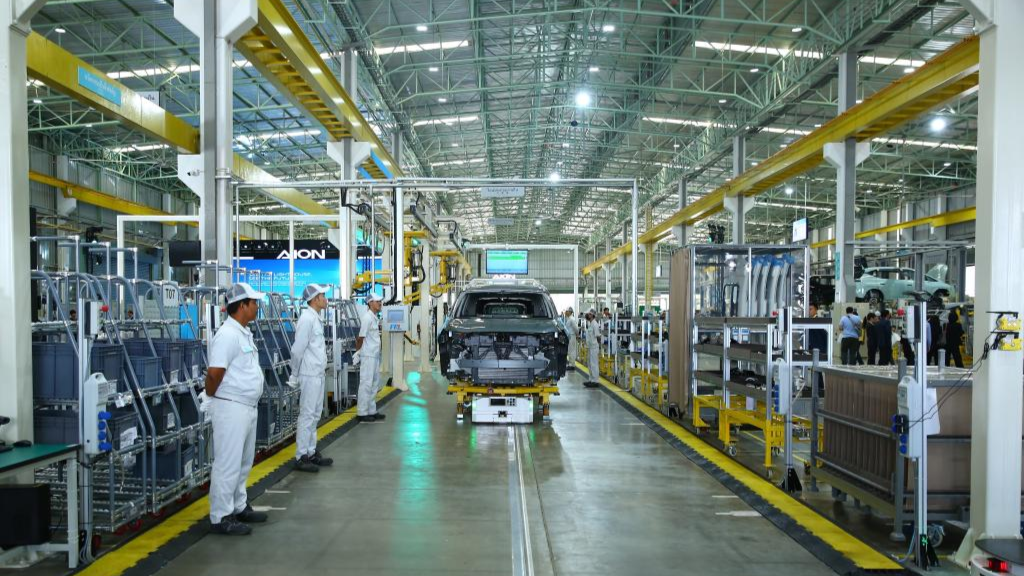
BANGKOK - Industry leaders from six global automotive giants convened here to discuss the future of electric and hybrid vehicles (xEV), highlighting opportunities for innovation and identifying crucial challenges for Thailand.
Senior executives from Chinese, Japanese, and European carmakers attended the symposium co-organized by Thailand's Board of Investment (BOI) on Wednesday, sharing insights and strategies on developing the industry and integrating the Southeast Asian country into the global supply chain.
Rene Gerhard, president and CEO of BMW Group Thailand, highlighted the growing influence of digitalization and sustainability in shaping the automotive industry.
READ MORE: Thailand's first EV rolls off production line with China' help
Gerhard stressed the importance of building robust digital, logistic, and IT systems in collaboration with local suppliers to address global trade volatility and ensure resilient supply chains.
Noriaki Yamashita, president of Toyota Motor Thailand, said the company will continue investing in hybrid electric vehicle development as the adoption of hybrid technology gains momentum, particularly in the region.
He called for stronger domestic market support and improved competitiveness for both local consumption and exports to make Thailand a robust xEV production base.
Suroj Sangsnit, executive vice-president of SAIC Motor-CP, expressed optimism in Thailand's gradual transition toward electrification driven by sustainability-focused policies.
"Our MG brand is committed to strengthening local supply chains through partnerships and technology transfer," he said. "We also prioritize ESG practices in all business operations and believe in building mutual growth with Thai entrepreneurs."
Guan Xin, deputy general manager of Changan Automobile Southeast Asia, said the firm invested in Thailand as its first overseas manufacturing hub, seeking to develop human resources, enable technology transfer, boost local employment, and increase the sourcing of domestic components.
In a keynote address, BOI secretary-general Narit Therdsteerasukdi said the automotive industry is one of the key sectors driving the Thai economy, with more than 2,000 businesses involved in the supply chain and employing more than 900,000 people.
Narit noted that the popularity of xEVs has grown rapidly over the past three years, with the number of registered xEVs in Thailand jumping from 84,500 units in 2022 to 206,000 units in 2024.
According to the BOI, 644 projects have been applied for investment promotion in xEV production and components over the previous three years, with a total investment value exceeding 280 billion baht (about $8.42 billion).
READ MORE: BYD opens Thailand plant as its 8 millionth NEV rolls off line
Under the Thai government's investment promotion, the kingdom aims to convert 30 percent of its annual vehicle production to zero-emission vehicles by 2030 as part of its transition toward green mobility.


